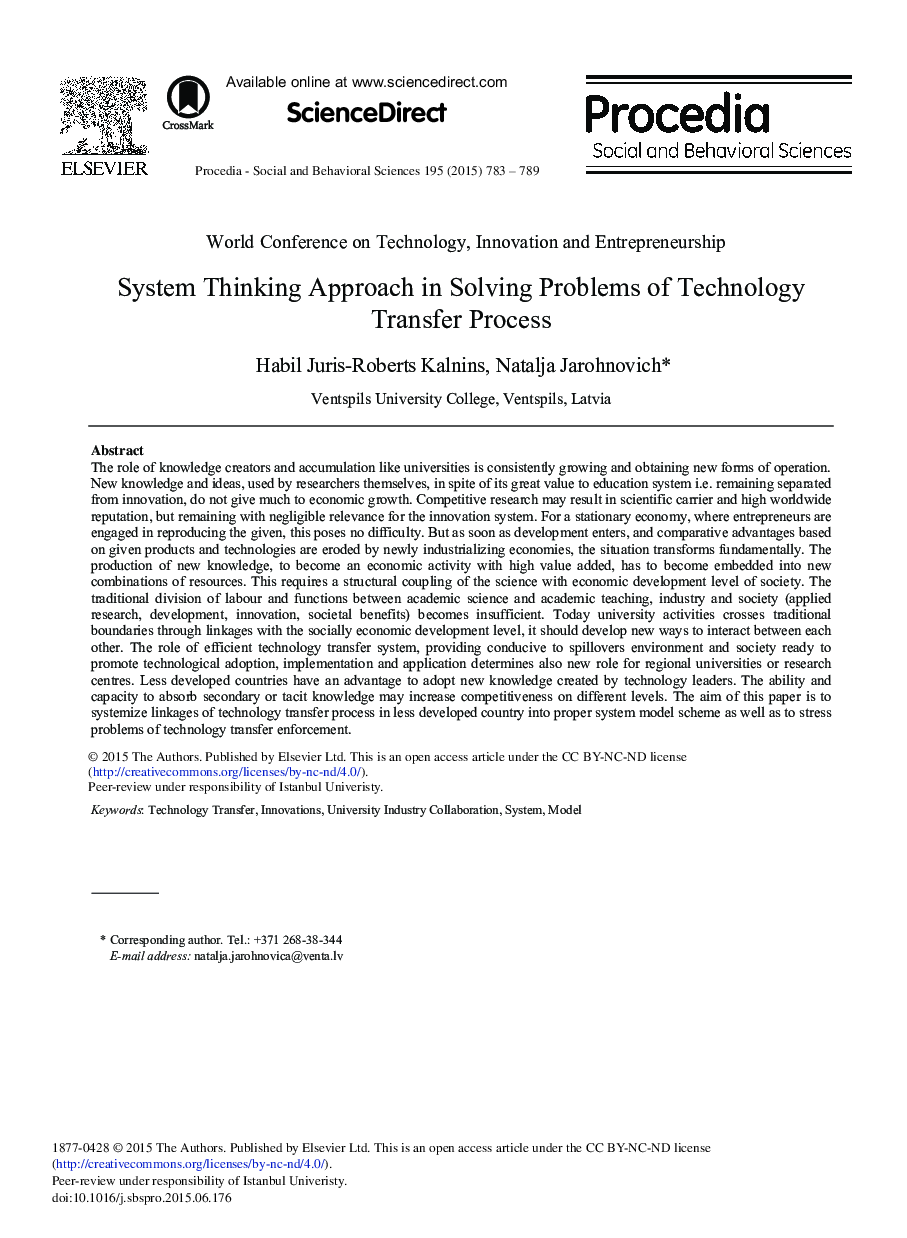| Article ID | Journal | Published Year | Pages | File Type |
|---|---|---|---|---|
| 1110104 | Procedia - Social and Behavioral Sciences | 2015 | 7 Pages |
The role of knowledge creators and accumulation like universities is consistently growing and obtaining new forms of operation. New knowledge and ideas, used by researchers themselves, in spite of its great value to education system i.e. remaining separated from innovation, do not give much to economic growth. Competitive research may result in scientific carrier and high worldwide reputation, but remaining with negligible relevance for the innovation system. For a stationary economy, where entrepreneurs are engaged in reproducing the given, this poses no difficulty. But as soon as development enters, and comparative advantages based on given products and technologies are eroded by newly industrializing economies, the situation transforms fundamentally. The production of new knowledge, to become an economic activity with high value added, has to become embedded into new combinations of resources. This requires a structural coupling of the science with economic development level of society. The traditional division of labour and functions between academic science and academic teaching, industry and society (applied research, development, innovation, societal benefits) becomes insufficient. Today university activities crosses traditional boundaries through linkages with the socially economic development level, it should develop new ways to interact between each other. The role of efficient technology transfer system, providing conducive to spillovers environment and society ready to promote technological adoption, implementation and application determines also new role for regional universities or research centres. Less developed countries have an advantage to adopt new knowledge created by technology leaders. The ability and capacity to absorb secondary or tacit knowledge may increase competitiveness on different levels. The aim of this paper is to systemize linkages of technology transfer process in less developed country into proper system model scheme as well as to stress problems of technology transfer enforcement.
